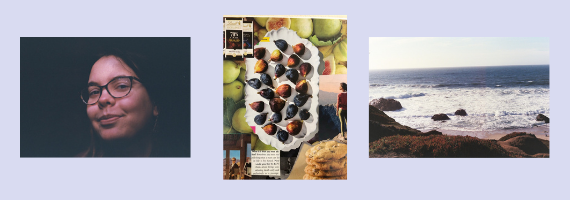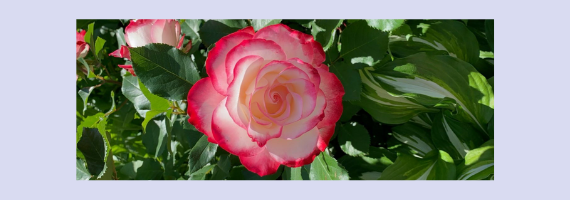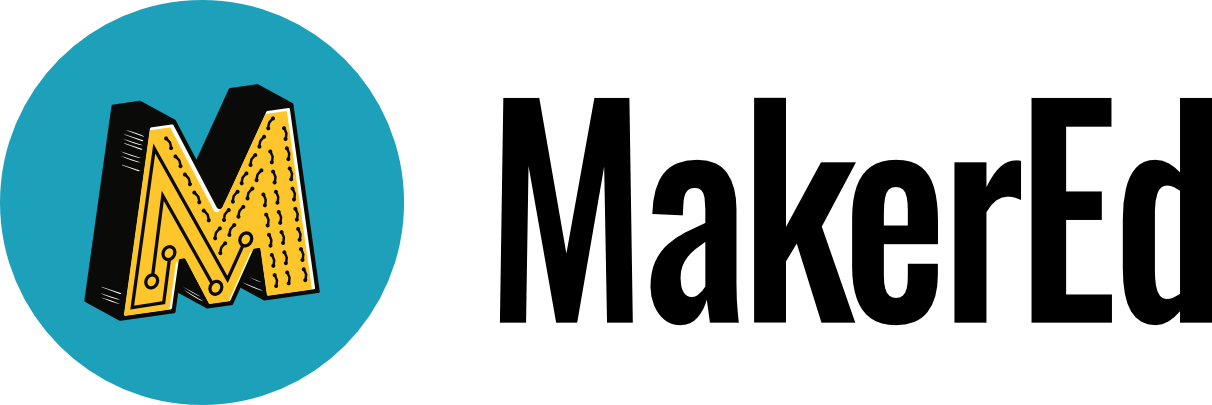
In this post, we meet Isabel, (she/her/hers) a positive and cognitive psychologist focused on bridging joy and play with community engagement and facilitation to build a fun, diverse, robust Maker Ed network.
Tell us a little more about you.
I studied human happiness and brain science because I’m interested in the ways we understand, cultivate, and practice care, joy, and rest in our capitalist and protestant society. It feels radical to center well-being, and that’s exciting to me. Some of my favorite ways to center well-being are to hike, walk the beach, play cards, bake, and collage. I love to combine scraps of magazines and stickers to make scenic mood boards.
What’s one thing about yourself that you think is important for others to know?
I’m a proud transfer student, and I felt so loved and supported by my community college (go Butte!). In many ways, the educators there put me on the Maker path more than my UC Berkeley teachers and lecturers did, and going to community college allowed me to explore art, technology, and maker spaces as I got my general education under my belt. My later collegiate experience at Cal was defined by my time in the transfer student center and the cooperative system, where I lived in an academic community that had a maker space. Living, learning, and leading in that community gave me a basic understanding of the power of making – whether it be with a 3D printer, a screen printer, or a decision matrix. These experiences shaped my values of liberatory design and community care, and eventually led me to Maker Ed.
What excites you the most about your work?
Creating webs of support and care for those who are interested in our work, or who might be connected to our mission in some way. I think you don’t necessarily have to be a teacher or work at a school to be an educator or a scholar, and so it’s fun to ideate how to tap into communities where people are casually, lovingly teaching each other or disseminating information beautifully and artistically. That can look like finding and working with Instagram artists or edupreneurs, collaborating with museum directors, or sending a newsletter poll. I love building relationships and supporting creativity. Also, as the Community Engagement Co-Lead, I get to work with my amazing Co-Lead Donaldo Almazan, our amazing Director of Storytelling Raquel Trinidad, and the entire Maker Ed team in many capacities. Working with this team is amazing and I can’t wait to see what we do together!
Why do you make?
I make because it’s fun, because it feels like a release of perfectionism, and because it connects me to my community. Making something is a great way to exit doom and gloom – when life feels sad or hard, creating is a way to ground ourselves in our shared reality. On a psychological and social level, making connects and protects our psyches, cultures, and folkways.
What dreams do you have for young people?
I dream that young people are supported, loved, and cheered on in the making process, but also just in general. Supporting young people’s curiosity, self esteem and character is really important for a healthy, loving culture that takes chances and isn’t afraid to be wrong, make mistakes, or be corrected. I hope young people know it’s okay to change your mind, try new things, and enjoy something even if you’re not good at it or if it’s not a marketable skill. I dream that young people can have hobbies they don’t have to monetize, and that they have the support to make for the sake of making.
If you could share one word of advice to give to other educators, what would it be?
First of all I’d like to say thank you. I know being an educator is hard work, even before the pandemic. It’s important to me that we create webs of support for educators and within the educational community so folks have resources, funds, relationships that spur them on and feel loving. After that, I’d say my word of advice for educators is “rest.” Don’t forget to take time for yourself. I know a large facet of education is giving – time, attention, energy, money, love, etc – to your students. We can’t pour from empty cups! We’re here to help you fill them up.
Are there other makers and/or educators in your community whose work you’d like to promote?
I’d love to shout out my first psychology professor, Heather Valle; your expertise, enthusiasm, and care inspired me down my path; I’d love to promote artist and writer Fariha Róisín, whose writings and social media presence have guided me in my exploration of wellness culture, and I’d love to promote The Edible Schoolyard Project and my friend Sama Mirghavameddin, a Garden Specialist there, for encouraging my love of ecology and seeing that ecology isn’t just about the land – it’s how we create webs of support for all beings. And I’d love to shout out to my parents, who have been writing and reading me stories my whole life: I’m grateful to have experienced firsthand the importance of storytelling.

